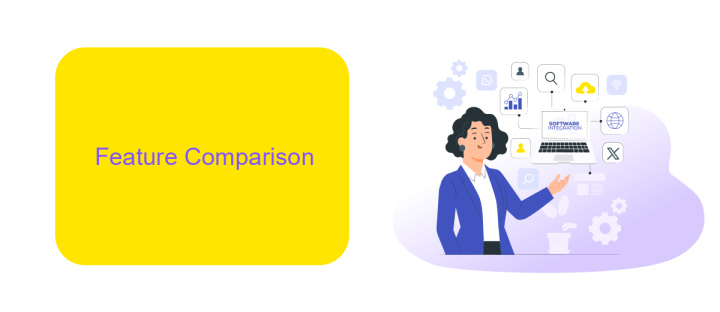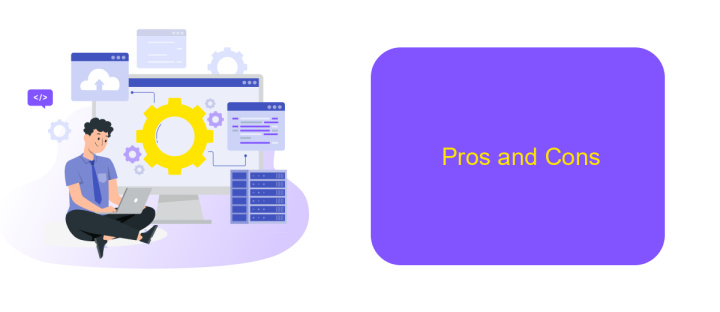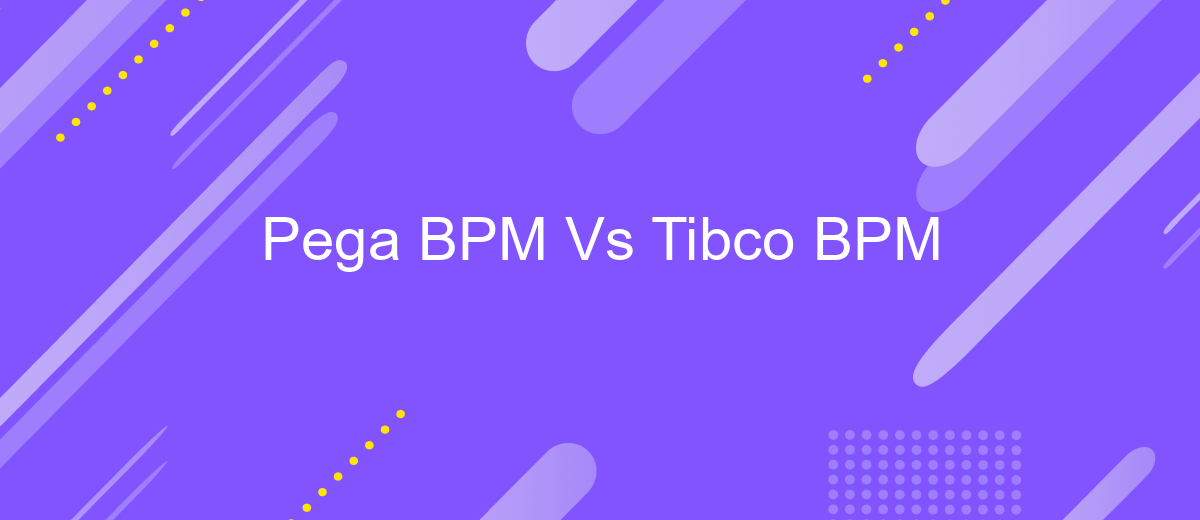Pega BPM Vs Tibco BPM
When it comes to Business Process Management (BPM) solutions, Pega BPM and Tibco BPM are two prominent contenders in the market. Both platforms offer robust features for automating workflows and improving organizational efficiency. However, they cater to different business needs and have unique strengths. This article delves into a comparative analysis of Pega BPM and Tibco BPM to help you make an informed decision.
Introduction
In the rapidly evolving world of business process management (BPM), selecting the right platform can significantly impact organizational efficiency and agility. Pega BPM and Tibco BPM are two leading solutions that offer robust tools for automating and optimizing business processes. Both platforms provide unique features and capabilities, making it essential to understand their differences and advantages.
- Pega BPM: Known for its low-code development environment, Pega BPM excels in ease of use and rapid deployment.
- Tibco BPM: Offers comprehensive integration capabilities and is highly scalable, making it suitable for complex enterprise environments.
Choosing between Pega BPM and Tibco BPM depends on various factors, including your organization's specific needs, existing infrastructure, and long-term goals. For instance, if seamless integration with other services is a priority, tools like ApiX-Drive can facilitate the process, ensuring smooth and efficient data flow across different systems. Ultimately, a thorough evaluation of both platforms will help determine the best fit for your business.
Feature Comparison

When comparing Pega BPM and Tibco BPM, one of the key differences lies in their integration capabilities. Pega BPM offers a robust suite of integration tools that allow seamless connectivity with various enterprise systems. It supports a wide range of APIs and provides built-in connectors for popular services. On the other hand, Tibco BPM excels with its powerful integration framework, which includes the ability to connect with diverse applications and data sources. Both platforms can benefit from additional integration services like ApiX-Drive, which simplifies the process of connecting different software solutions without the need for extensive coding.
Another important aspect to consider is the user interface and user experience. Pega BPM is known for its intuitive and user-friendly interface, which allows business users to design and manage processes with minimal technical expertise. Tibco BPM, while also offering a comprehensive set of features, may require a steeper learning curve for new users. Additionally, Pega BPM provides extensive documentation and community support, making it easier for organizations to adopt and implement. In contrast, Tibco BPM's strength lies in its advanced analytics and reporting capabilities, which provide deeper insights into business processes.
Use Case Comparison

When comparing Pega BPM and Tibco BPM, it's essential to consider their use cases to understand their strengths and limitations.
- Pega BPM excels in process automation for customer-centric operations, making it ideal for industries like finance and healthcare where customer interaction and compliance are critical.
- Tibco BPM is strong in data integration and real-time analytics, which makes it suitable for industries that require robust data processing capabilities, such as telecommunications and manufacturing.
- Both platforms offer integration services, but Pega BPM's approach is more user-friendly for business users, while Tibco BPM provides more technical flexibility for IT departments.
- For seamless integration with third-party applications, tools like ApiX-Drive can be leveraged to enhance both Pega and Tibco BPM functionalities, ensuring smooth data flow and operational efficiency.
Ultimately, the choice between Pega BPM and Tibco BPM depends on your specific business needs, the complexity of your processes, and the level of integration required. Both platforms offer unique advantages that can be optimized with the right tools and strategies.
Pros and Cons

When comparing Pega BPM and Tibco BPM, it's important to consider their individual strengths and weaknesses. Both platforms offer robust solutions for business process management, yet they cater to different needs and preferences.
Pega BPM is known for its user-friendly interface and strong capabilities in case management. It allows for rapid application development and provides extensive customization options. On the other hand, Tibco BPM excels in integration capabilities, making it a preferred choice for organizations with complex IT environments.
- Pega BPM Pros: Intuitive interface, rapid development, strong case management.
- Pega BPM Cons: Higher cost, steep learning curve for advanced features.
- Tibco BPM Pros: Excellent integration capabilities, scalable, robust analytics.
- Tibco BPM Cons: Less user-friendly, requires more technical expertise.
For businesses needing seamless integration with various applications, tools like ApiX-Drive can be highly beneficial. ApiX-Drive simplifies the integration process, making it easier to connect Pega BPM or Tibco BPM with other systems, enhancing overall efficiency and effectiveness.
Conclusion
In conclusion, both Pega BPM and Tibco BPM offer robust solutions for business process management, each with its unique strengths. Pega BPM excels in its user-friendly interface, powerful case management capabilities, and seamless integration with various enterprise applications. On the other hand, Tibco BPM stands out with its strong focus on real-time data analytics and event-driven architecture, making it ideal for organizations that require immediate insights and actions.
Ultimately, the choice between Pega BPM and Tibco BPM depends on your specific business needs and goals. If ease of use and comprehensive case management are your priorities, Pega BPM may be the better fit. However, if your organization requires advanced data analytics and real-time processing, Tibco BPM could be more suitable. Additionally, services like ApiX-Drive can further enhance the integration capabilities of both platforms, ensuring smooth and efficient connectivity with other tools and systems in your workflow.
- Automate the work of an online store or landing
- Empower through integration
- Don't spend money on programmers and integrators
- Save time by automating routine tasks
FAQ
What are the main differences between Pega BPM and Tibco BPM?
Which platform is better for large-scale enterprise applications?
How do Pega BPM and Tibco BPM handle integration with other systems?
What are the deployment options for Pega BPM and Tibco BPM?
Can I use third-party services for automation and integration with Pega BPM and Tibco BPM?
Apix-Drive is a simple and efficient system connector that will help you automate routine tasks and optimize business processes. You can save time and money, direct these resources to more important purposes. Test ApiX-Drive and make sure that this tool will relieve your employees and after 5 minutes of settings your business will start working faster.


